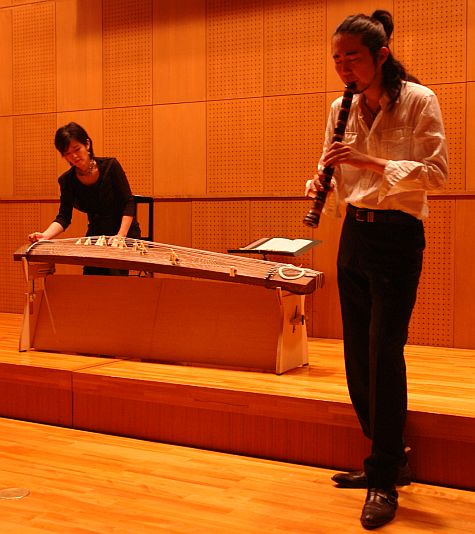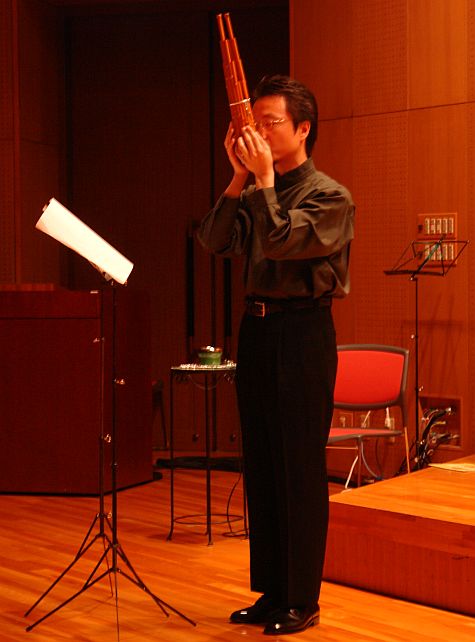The ISSS meeting featured an evening of traditional Japanese music, with a koto, shakuhachi and sho.
As entertainment for the ISSS meeting, we had traditional Japanese music played on original instruments. Ai Kajigano played the koto — a harp-like instrument strongly identified with Japanese music — and Hiromu Motonaga played the shakuhachi, a kind of flute.
Naoyuki Manabe played the sho, a multi-reed instrument. The uniqueness of the sho opened an opportunity for some description. The instrument is blown from a hole near the base. The reeds have to be kept wet, which meant continuing rotation of the instrument — which might have otherwise been interpreted as fidgeting by the musician — during rests. The sho can play chords, reminiscent of a pipe organ at some times.
The evening was a relaxed, special event that many of us will remember as a feature of the conference.




